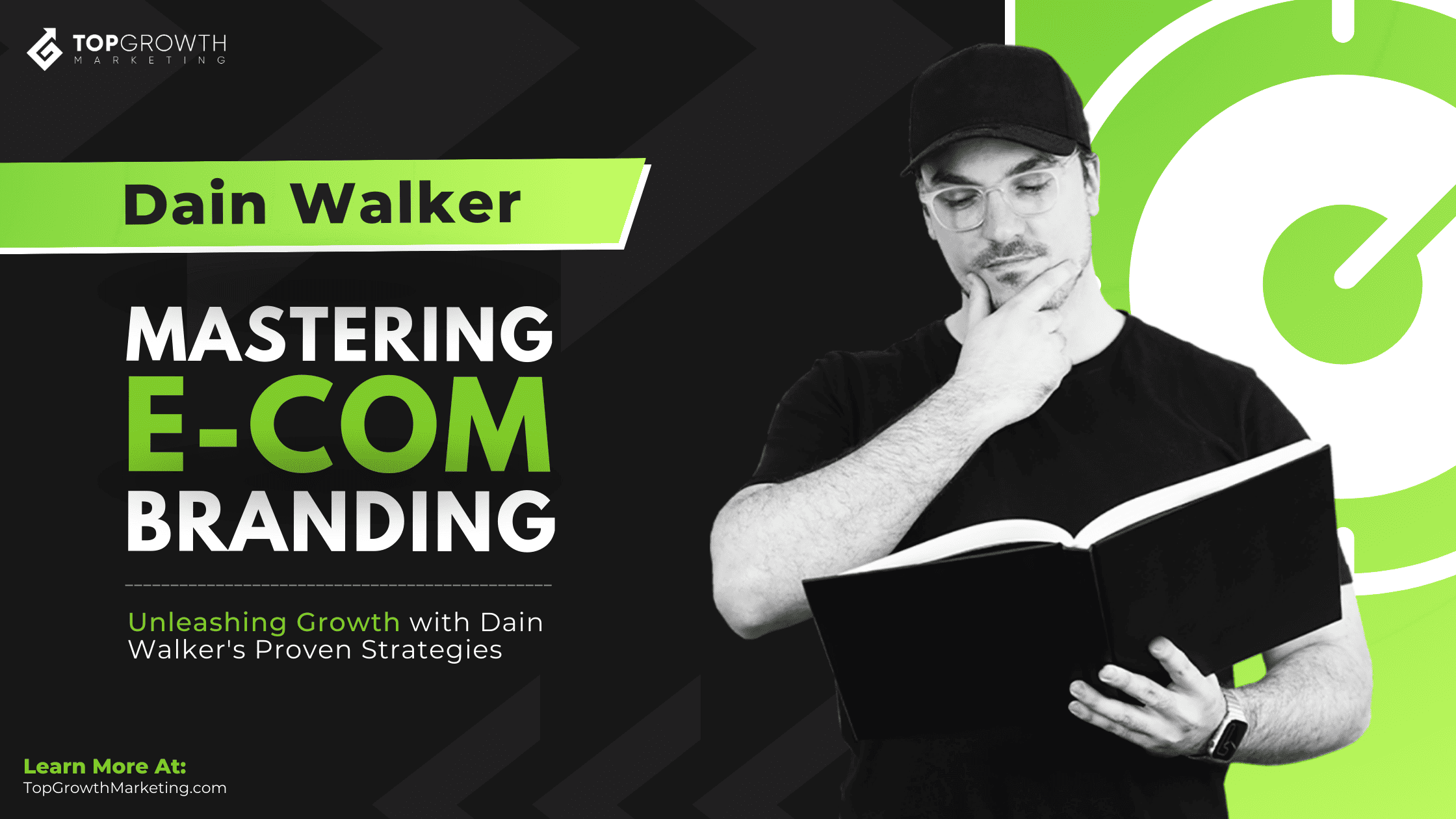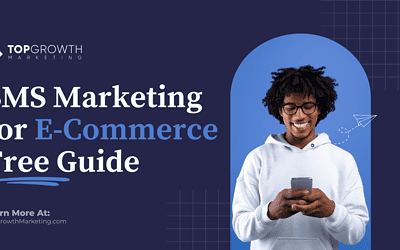In this article, we’re delving into the profound insights shared by Dain Walker, the mastermind behind Rival, the fastest-growing branding agency, during his appearance on the ‘Blitz Growth’ podcast.
Walker’s wisdom on effective branding strategies and establishing a potent, resounding brand voice is a treasure trove for e-commerce entrepreneurs aiming to carve a niche in the competitive market and growth grow their e-commerce business.
The Importance of Branding in E-commerce
Walker believes that at its core, branding is about ‘creating clarity.’ The more lucid and obvious your brand image, the more compelling it becomes.
For e-commerce businesses, this clarity translates into identifying the problems their products and services can solve for customers, defining their unique selling proposition (USP) that sets them apart from the competition, and delivering this message effectively.
The wrong approach to building clarity in branding often involves being overly generic, failing to understand your target audience, and not being consistent.
Businesses that try to appeal to everyone often end up resonating with no one; their messaging becomes diluted and their brand unclear.
Moreover, without a deep understanding of the target audience’s needs, preferences, and pain points, businesses may struggle to communicate how their products or services solve a specific problem.
Strategic branding helps you connect with your target audience, fostering customer loyalty, and sparking word-of-mouth recommendations, a powerful tool for growing your customer base.
Patagonia’s brand story is an excellent example of how clarity in branding can work wonders to grow your business.
- It is authentic. Patagonia’s branding is true to the company’s values and mission.
- It is aligned with the company’s target audience. Patagonia’s branding appeals to people who are interested in environmental sustainability and outdoor recreation.
- It is consistent. Patagonia’s branding is consistent across all channels, from its website and marketing materials to its retail stores.
- It is creative. Patagonia’s branding is innovative and stands out from the competition.
Constructing a Strong E-Commerce Brand Through Contagion
Dain Walker emphasizes the concept of “brand contagion,” a phenomenon that occurs when customers are so satisfied with your brand that they become voluntary advocates.
These brand ambassadors, driven by their positive experiences and genuine love for your products or services, naturally share and promote your brand within their networks.
This could take the form of social media posts, word-of-mouth referrals, or even hosting unboxing videos and product reviews online.
This organic marketing technique is exceptionally powerful in e-commerce.
In an industry where customers often rely heavily on reviews and recommendations, having your customers vouch for you can significantly enhance your brand’s credibility and trustworthiness.
Furthermore, these customer-led promotions often reach an audience that traditional marketing methods may not, thereby broadening your reach.
Plus, brand contagion also encourages customer loyalty.
When customers become brand ambassadors, they develop a stronger emotional connection to your brand, making them more likely to return for repeat purchases.
This not only increases the customer’s lifetime value but also creates a community of loyal customers who consistently advocate for your brand. Thus, fostering brand contagion can have a substantial and long-lasting positive impact on your e-commerce business.
Let’s consider SumoJerky, a beef jerky subscription company (yea read that right). As part of a 24-hour business challenge, Noah Kagan, the founder, identified his target audience and began reaching out to potential customers, achieving more than $1,000 in revenue in just 24 hours.
Developing Content That Connects
A significant aspect of brand building, irrespective of the business type, is creating content that genuinely engages your audience.
For e-commerce businesses, this includes captivating product descriptions, high-quality photography, compelling blog posts, interactive social media content, and comprehensive buying guides.
According to Walker, the effectiveness of a post isn’t gauged by the likes or followers it amasses, but by the number of shares it generates.
The more your content is shared, the higher the probability of it becoming ‘culturally contagious,’ drawing more traffic and potential customers to your e-commerce store.
Create Value-Driven Content
One of the most effective ways to make your content more shareable is to ensure that it provides value to your audience. This could be in the form of educational content, industry insights, practical tips, or even entertaining content.
When your content helps solve a problem or provides useful information, people are more likely to share it with their networks.
Utilize Engaging Visuals
Including high-quality images, infographics, videos, or other visual elements can make your content more engaging and shareable.
Visuals not only make content more appealing and easy to digest, but they also help convey your message more effectively, especially on platforms like Instagram and Pinterest which are highly visual.
Encourage User-Generated Content (UGC)
Encouraging your customers to create and share content related to your brand can significantly increase your content’s shareability.
This could involve hosting contests, featuring customer reviews, or sharing customer photos of your products.
User-generated content not only provides authentic and relatable content but also fosters a sense of community around your brand, encouraging more shares.
Accentuating Your Strengths in Branding
Walker advises that building a robust personal brand entails a thorough, honest self-assessment of one’s strengths and weaknesses.
This principle applies equally to e-commerce businesses. Identifying what they excel at—whether it’s top-notch customer service or a unique product—and highlighting these strengths in your branding efforts can set you apart.
For instance, if your strength is top-notch customer service, you could create a series of posts showcasing your team’s commitment to customer satisfaction, highlight testimonials, or create a short video series on how your team goes above and beyond to serve customers.
Establishing a Unique Brand Amidst Competition
Walker highlights the crucial roles of uniqueness and authenticity in standing out in a crowded market. Embracing your story and letting your brand’s voice reflect your values can foster transparency and authenticity, building long-term trust and loyalty among your customers.
Consider the case of MixedMade, a company that combined raw honey with a blend of chili peppers to create Bees Knees Spicy Honey.
Their unique product and aggressive press targeting strategy led to their business’s explosion, underlining the power of a unique and authentic brand.
Branding For Growth
Branding is a vital element of any successful e-commerce business. By learning from branding professionals like Dain, e-commerce entrepreneurs can apply top-notch strategies to differentiate their online stores.
As you refine your branding strategies, consider the problem your store solves, the clarity and appeal of your messaging, and how effectively you’re engaging your customers.
Over time, these endeavors will help you construct a powerful, distinct brand that resonates with your customers, driving sales and fostering brand loyalty.
The insights from successful branding might be the key to differentiating your e-commerce store from the rest in the marketplace. With the right branding, you can transition from being just another online store to a preferred shopping destination for customers.









Great article!
Thanks Diogo 🙂